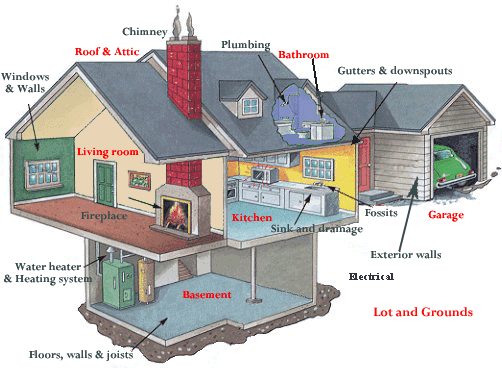
What is a Home Inspection
A home inspection is a thorough examination of the condition and structure of a residential property. It is typically conducted by a qualified and certified home inspector, who is trained to assess various aspects of the property. The primary purpose of a home inspection is to provide the potential buyer with a comprehensive report about the property's condition before finalizing the purchase.
.
What really matters in a home inspection
Here are some key aspects of a home inspection:
Exterior Evaluation: The inspector examines the exterior of the home, including the roof, siding, foundation, and drainage systems. They check for signs of damage, deterioration, or potential issues.
Interior Inspection: The interior of the home is inspected, focusing on elements such as walls, ceilings, floors, windows, doors, and staircases. The inspector looks for structural issues, water damage, and signs of wear and tear.
Electrical Systems: The inspector assesses the electrical system, including the wiring, outlets, switches, and the main electrical panel. They check for safety hazards and code compliance.
Plumbing Systems: Plumbing systems, including pipes, fixtures, water heaters, and drainage, are inspected for leaks, damage, or faulty components.
Heating, Ventilation, and Air Conditioning (HVAC): The HVAC system is examined to ensure it is in good working condition, including the furnace, air conditioner, ductwork, and ventilation.
Appliances: The inspector may test major appliances that are included with the property, such as the stove, oven, dishwasher, and garbage disposal.
Structural Integrity: The home inspector evaluates the structural components of the property, including the foundation, load-bearing walls, and the overall structural stability of the building.
Documentation: The inspector provides a detailed report, often with photographs, highlighting any issues or concerns discovered during the inspection. This report can be a valuable tool for negotiations with the seller.
Home inspections are essential for buyers to make informed decisions about a property purchase. They help identify any necessary repairs or maintenance, potentially saving the buyer from unexpected expenses and ensuring the safety and suitability of the home. It's important to note that while home inspections are strongly recommended, they are typically not required by law, but many lenders and real estate agents strongly advise them as part of the home-buying process.

